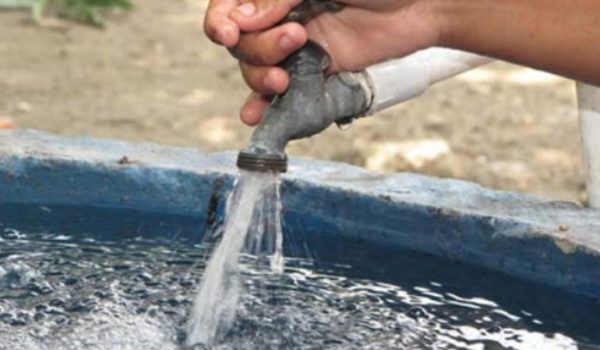A silent crisis has been brewing under our feet. According to important studies, the water that runs through the Yucatecan subsoil has gradually become contaminated and if the current trend continues, it is likely to end up transforming into a cocktail of chemical and fecal waste that will technically kill the water table in Merida.
For those who are not aware of the problem, we are talking about a crisis that gets worse by the minute under the ground we step on. Certainly, the alarm signals do not seem to be sounding. In a sense, this reaction is understandable. The younger generations simply “buy” purified and bottled water in one of its various “commercial” presentations; that is to say, that for a growing number of Yucatecans the mere concept of drinking water implies purified H2O in a bottle.
But the normal becomes questionable when we consider that 30 years ago many Yucatecans drank water “from the tap”, or “well”, not to mention that in several countries around the world buying bottled water is almost unthinkable -for example, in Scotland there are no jug water and it is equally safe to drink water from any tap in a house or business. While in Ethiopia, where drought and politics are two leading causes of water shortage, a study conducted by Water.org shows that “only 42% of the population has access to a clean water supply.
In this sense, the lack of information can make changes in our lives look just like the tip of an iceberg constituted by serious and diverse threats. What is not seen tends to be considered irrelevant. Let’s talk about two specific situations:
The first is the eviction of wastewater to the subsoil. In Yucatan, half of the houses evacuate their wastewater containing all kinds of waste – mainly fecal waste – to the subsoil through sumps. According to the book “The management of water through time in the Yucatan peninsula” (UADY, 2017), only half of the Yucatecan houses have septic tanks and only half of these provide adequate maintenance to them.
The second is pollution in cenote rings. Probably one of the researchers who has studied this phenomenon the most is Dr. Ángel Polanco, whose works have been published in some of the most important scientific journals and reveal various aspects of the magnitude of this problem, such as the presence of Pesticides banned in other parts of the world are present in the water that 30% of Yucatec Mayan women drink (“Environmental Pollution”, 2016).
Confronted with the consciousness of the gradual deterioration of our rights, of our environment, and with the previous evidences in hand, one would have to question why water “suddenly” is no longer recommended for human consumption? Why our governments have validated this logic? And what is the ecological cost involved?
As a society, we need to accept the responsibility of properly informing ourselves and to guarantee our rights to access water, to enjoy a healthy environment. Because, if we leave the issue in hands of our government, instead of informing us or tackling the problem, our leaders will keep on unceremoniously throwing us into the arms of the bottling companies -with the economic, social and environmental costs that this represents- Our Federal and State governments are not showing consideration towards clearly fundamental (and not renewable) resources, which deterioration implies a direct harm to the quality of life in Yucatan. The water crisis is real and sooner or later the problem will blow up in the face of the Yucatecan society.
However, not all is lost and deterioration is not inevitable; an important window of opportunity will open with the electoral process this year. If there is a moment in which those who aspire to represent us are receptive, it is on the eve of elections, so this is probably the best time to demand solutions to this terrible problem.
We need to speak out, let the authorities know that we are fully aware of our water crisis, we need to point out those responsible for its action, its inaction or its brutality. Massive communication media companies (press, TV, radio and internet) have the social duty of informing the population about this crisis.
Today, Social Network Platforms are the perfect forums to discuss issues related to public affairs, and we need to make a difference in this regard. We need to be realistic and crystal clear about the importance and magnitude of this subject. We need the unity of Yucatecan minds and voices around a topic that concerns us all.
I leave this invitation on your doorstep, what are you going to do about it?
By Antonio Salgado Borge (Edinburgh, United Kingdom).
Antonio Salgado Borge, PhD in Philosophy (University of Edinburgh). Master of Philosophy (University of Edinburgh) and teacher in Humanistic Studies (ITESM) wrote this editorial for Diario de Yucatán.
Source: Diario de Yucatan



